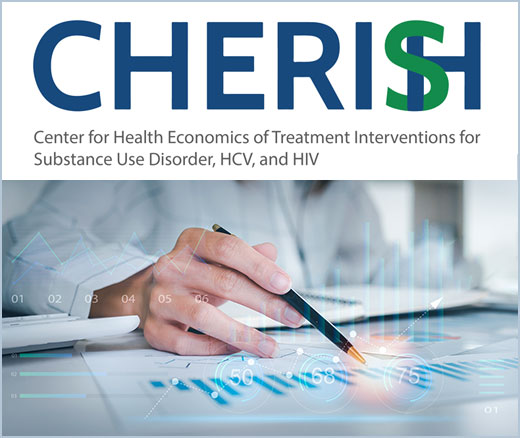
New Model Predicts Stimulant Overdose Risk Among Medicaid Patients
LDI Fellows Used Medicaid Data to Identify Individuals at Highest Risk for Cocaine- and Methamphetamine-Related Overdoses, Paving the Way for Targeted Prevention
Substance Use Disorder
Blog Post
Produced in conjunction with the Center for Health Economics of Treatment Interventions for Substance Use Disorder, HCV, and HIV
The opioid epidemic has been an ongoing public health crisis in the United States, claiming countless lives and devastating communities. Buprenorphine, a highly effective medication for the treatment of opioid use disorders, holds the potential to save lives. However, a significant hurdle exists in the form of prior authorization requirements, which are associated with lower access to this life-saving medication.
Some state Medicaid plans continue to burden clinicians and patients by requiring them to fill out prior authorization forms for buprenorphine. This bureaucratic process can discourage clinicians from treating patients and make it harder for individuals to seek or continue care.
What is Prior Authorization? According to Healthcare.gov, prior authorization refers to a health plan requirement that patients obtain approval for a health care service or medication before covering it. The health plan determines whether it will cover the service or medication to determine if it will be covered using standards based on medical guidelines, cost, and utilization, among other factors.
According to existing evidence, removing prior authorization requirements leads to more engagement in treatment, better outcomes, and reduced overdose risks. Individuals are also less likely to turn to a street supply of buprenorphine as an alternative to a burdensome prescription process.
A recent qualitative study led by Max Jordan Nguemeni Tiako and coauthored by LDI Senior Fellows Shoshana Aronowitz and Zachary Meisel and colleagues Abby Dolan, Matthew Abrams, and Kehinde Oyekanmi reveals that prior authorization requirements remain common for buprenorphine in state Medicaid plans even while Medicare plans have eliminated these barriers. The continued prior authorization requirement among many Medicaid and commercial plans hinders access to crucial treatment options for some of the most vulnerable populations.
By conducting a thematic analysis across state Medicaid plans between November 2020 and March 2021, the researchers found that 32 of 50 states (64%) required prior authorization for at least one formulation of buprenorphine. Most states did not ask for prior authorization when prescribing buprenorphine-naloxone, a commonly used treatment for opioid use disorder. However, 15 states did require prior authorization even for this essential medication formulation.
Four key themes of prior authorization requirements emerged from the study:
The study’s findings underscore the impact that prior authorization requirements have on accessing buprenorphine treatment for opioid use disorders, particularly for Medicaid-insured low-income individuals, a population that is disproportionately affected by opioid use disorders.
The American Medical Association Opioid Task Force strongly urged states to remove barriers to medication-assisted treatment, emphasizing the danger they pose to patients. Eliminating these obstacles across Medicaid plans can potentially save lives, reduce costs, and improve patient outcomes in the ongoing battle against the opioid epidemic. Therefore, it is crucial for policymakers to consider lifting prior authorization requirements for buprenorphine across Medicaid plans in all states.
The study, “Thematic Analysis of State Medicaid Buprenorphine Prior Authorization Requirements,” was published on June 15, 2023 in JAMA Network Open. The authors are Max Jordan Nguemeni Tiako, Abby Dolan, Matthew Abrams, Kehinde Oyekanmi, Shoshana Aronowitz, and Zachary Meisel.



LDI Fellows Used Medicaid Data to Identify Individuals at Highest Risk for Cocaine- and Methamphetamine-Related Overdoses, Paving the Way for Targeted Prevention

Penn and Four Other Partners Focus on the Health Economics of Substance Use Disorder

Penn Medicine’s New Summer Intern Program Immersed Teens in Street Outreach Techniques

LDI Experts Offer 10 Solutions to Get More Help to Seniors With Addiction

More Flexible Methadone Take-Home Policy Improved Patient Autonomy
Research Brief: LDI Fellow Recommends Ways to Increase Availability